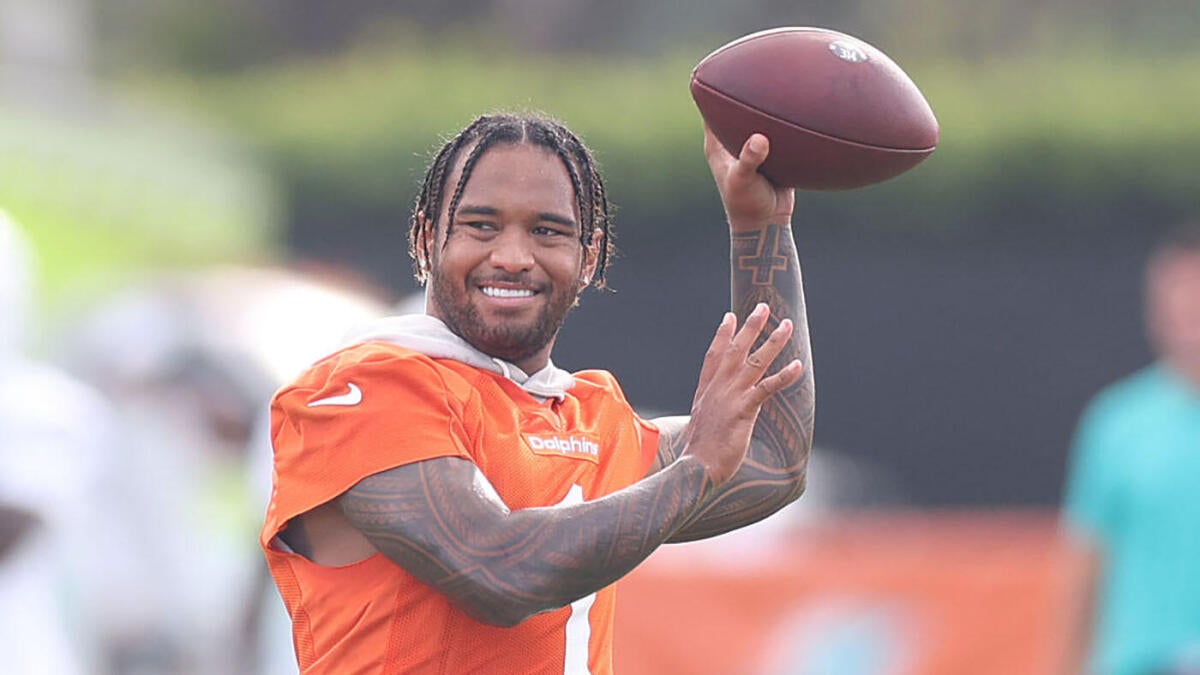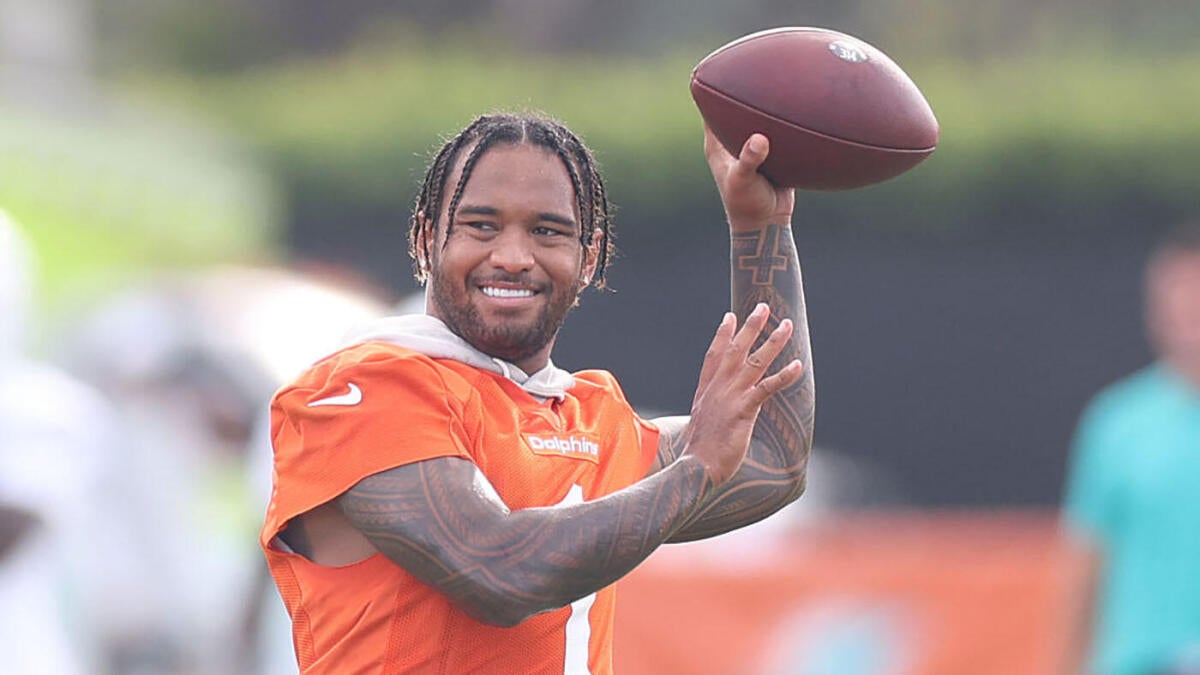Tua Tagovailoa’s Preseason Push: A Strategic Dilemma
The Importance of Preseason for Quarterbacks
Preseason games serve as a critical bridge between offseason preparation and regular-season performance. For quarterbacks like Tua Tagovailoa, these games offer invaluable opportunities to refine their skills in a live-game environment. The controlled chaos of preseason action allows quarterbacks to:
- Develop timing and rhythm: Synchronizing with receivers and offensive linemen is a dynamic process that cannot be fully replicated in practice.
- Test new plays and strategies: Implementing new offensive schemes requires real-game repetitions to ensure smooth execution.
- Build team chemistry: Establishing rapport with new teammates is crucial for on-field communication and trust.
Tagovailoa’s request for more preseason snaps reflects his professionalism and commitment to improvement. However, his injury history complicates this seemingly straightforward desire.
The Injury Conundrum
Tagovailoa’s NFL career has been marked by concussion concerns, with multiple head injuries raising alarms about his long-term health. The NFL’s growing awareness of concussion risks has led to more cautious approaches with vulnerable players. For Tagovailoa, this means:
- Increased scrutiny from medical staff: Every hit is analyzed for potential concussion risk.
- Potential limitations on playing time: Coaches may be hesitant to expose him to unnecessary contact.
- Career longevity concerns: Repeated head trauma could have long-term consequences for his playing career.
The Dolphins’ organization must balance Tagovailoa’s desire to play with the very real risks associated with his injury history. This delicate balance is at the heart of the preseason debate.
The Coaching Perspective
Head coach Mike McDaniel’s approach to Tagovailoa’s preseason participation has evolved over the years. The gradual reduction in preseason snaps suggests a calculated strategy to protect their franchise quarterback. This approach likely stems from:
- A focus on practice efficiency: McDaniel may believe that intense, game-like practices provide sufficient preparation.
- Injury prevention: Limiting preseason exposure reduces the risk of setbacks before the regular season.
- Confidence in Tagovailoa’s preparation: The coaching staff may trust that Tagovailoa’s offseason work is sufficient for regular-season readiness.
However, this cautious approach also raises questions about whether Tagovailoa is being adequately prepared for the rigors of regular-season competition.
The Team’s Stake in the Decision
The Miami Dolphins are at a critical juncture in their franchise development. After a disappointing playoff miss in 2024, the team faces increased pressure to perform in 2025. Tagovailoa’s health and performance are central to these aspirations. The organization must consider:
- Short-term gains vs. long-term health: Is the potential benefit of preseason snaps worth the risk to Tagovailoa’s availability?
- Team dynamics: How will limited preseason participation affect team chemistry and preparation?
- Franchise stability: Tagovailoa’s status as the team’s cornerstone player makes his health a top priority.
The decision to grant or limit Tagovailoa’s preseason participation will have ripple effects throughout the organization.
Potential Compromises
A middle-ground approach could satisfy both Tagovailoa’s desire for game experience and the team’s concerns about his health. Possible solutions include:
- Selective participation: Tagovailoa could play in specific preseason series, focusing on particular aspects of the offense.
- Controlled environments: The coaching staff could design plays that minimize contact risk while still providing valuable reps.
- Gradual increase in exposure: Starting with limited snaps and gradually increasing playing time could balance preparation and safety.
These compromises would allow Tagovailoa to gain valuable experience while mitigating injury risks.
The Broader Implications
The debate surrounding Tagovailoa’s preseason participation extends beyond individual games. It touches on larger themes in modern football:
- Player safety vs. performance: The NFL continues to grapple with how to protect players while maintaining competitive integrity.
- Quarterback management: Teams must carefully balance the needs of their franchise quarterbacks with the demands of winning.
- Long-term planning: Organizations must consider how their decisions today will impact their future success.
Tagovailoa’s situation serves as a microcosm of these broader challenges in professional football.
Conclusion: A Delicate Balance
Tua Tagovailoa’s preseason push presents the Miami Dolphins with a complex decision that balances immediate preparation with long-term health. While increased preseason snaps could enhance his performance and team chemistry, the risks to his well-being cannot be ignored. The organization must weigh these factors carefully, ultimately prioritizing Tagovailoa’s availability for the regular season.
In the end, the Dolphins’ approach to this dilemma will reveal much about their commitment to both winning and player welfare. The 2025 season will be a test of their ability to navigate this delicate balance, with Tagovailoa at the center of it all. The outcome will shape not just this season, but the future of the franchise.












